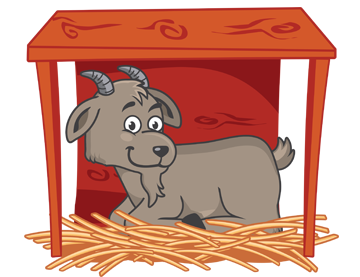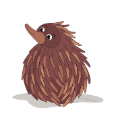Freedom from discomfort
All goats should live in a suitable and comfortable environment. A goat’s home, which includes its home, the feed and water, other animals around it and many other things, affects how they feel, think and behave. Providing your goat with adequate shelter and a comfortable resting area is one way you can make sure that your goat stays healthy and happy.

Did you know that there is a special law protecting animals?
This law is called the Animal Welfare Act. The Animal Welfare Act says that animals in your care must be provided with an environment and care that meets their five welfare needs. These welfare needs are five important conditions that animals need to be healthy and happy. These five welfare needs are called the five freedoms.
One of these Freedoms is: freedom from discomfort. In this section, you will learn about this freedom and how you can make sure your horse has the environment and shelter that he/she needs to be freed from discomfort.
In order to be free from discomfort, goats must also be healthy, well fed and have plenty of good water. These aspects will be covered in the other resources that explain about freedom from injury, pain and disease, and freedom from hunger and thirst.




































